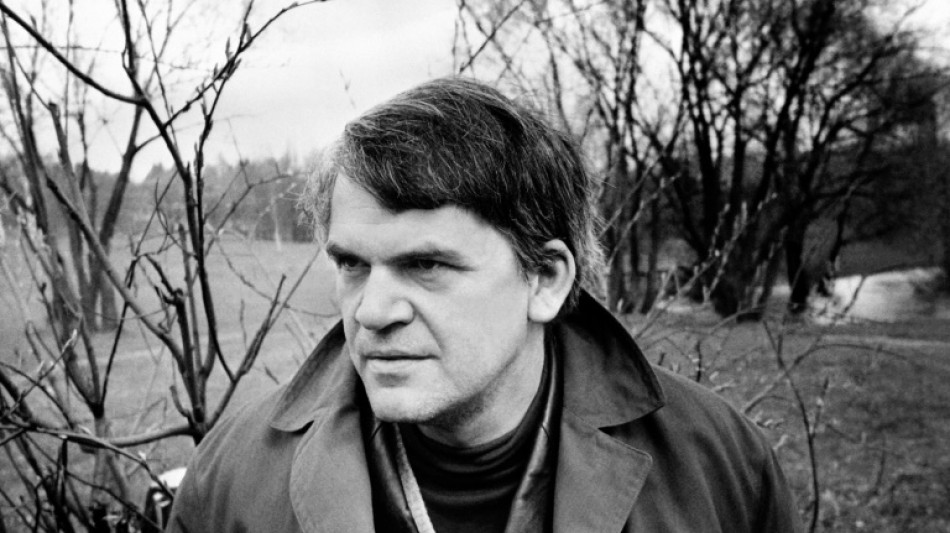
-
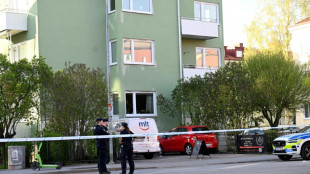 Sweden shooting kills three: police
Sweden shooting kills three: police
-
Real Madrid's Rudiger, Mendy out injured until end of season

-
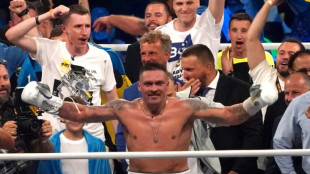 Dubois' trainer accuses Usyk of 'conning boxing world'
Dubois' trainer accuses Usyk of 'conning boxing world'
-
Femke Bol targets fast return after draining 2024

-
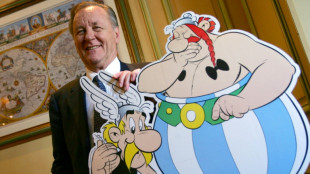 Asterix, Obelix and Netflix: US streamer embraces Gallic heroes
Asterix, Obelix and Netflix: US streamer embraces Gallic heroes
-
Watson wins Tour de Romandie prologue, Evenepoel eighth
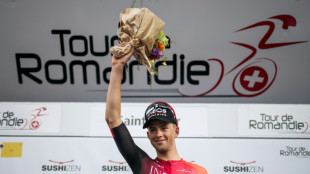
-
 Amazon says never decided to show tariff costs, after White House backlash
Amazon says never decided to show tariff costs, after White House backlash
-
India gives army 'operational freedom' to respond to Kashmir attack
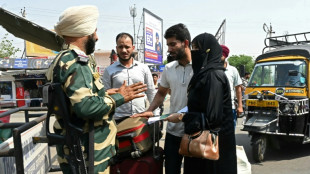
-
 Stocks advance as investors weigh earnings, car tariff hopes
Stocks advance as investors weigh earnings, car tariff hopes
-
Canadian firm makes first bid for international seabed mining license
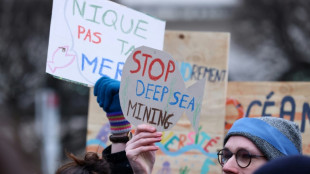
-
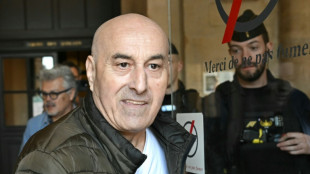 Kardashian robbery suspect says heist was one 'too many'
Kardashian robbery suspect says heist was one 'too many'
-
'Chilled' Swiatek scrapes into Madrid Open last eight

-
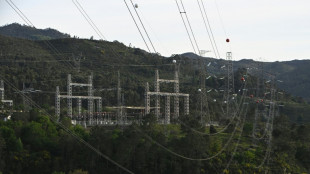 Interconnectivity: the cornerstone of the European electricity network
Interconnectivity: the cornerstone of the European electricity network
-
France accuses Russian military intelligence of cyberattacks
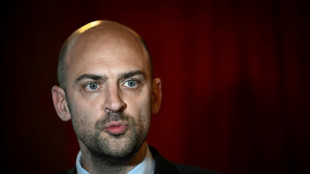
-
 Multiple challenges await Canada's Carney
Multiple challenges await Canada's Carney
-
US consumer confidence hits lowest level since onset of pandemic

-
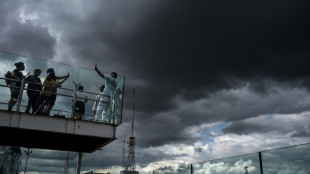 How climate change turned Sao Paulo's drizzle into a storm
How climate change turned Sao Paulo's drizzle into a storm
-
Video game rides conclave excitement with cardinal fantasy team
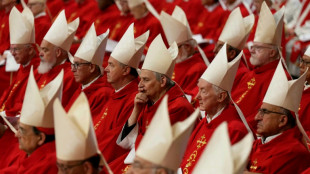
-
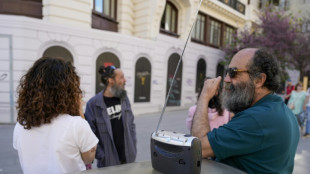 Candles and radios in demand in Spain as blackout lessons sink in
Candles and radios in demand in Spain as blackout lessons sink in
-
Boca Juniors sack coach Gago ahead of Club World Cup

-
 Trump celebrates tumultuous 100 days in office as support slips
Trump celebrates tumultuous 100 days in office as support slips
-
Forest face 'biggest games of careers' in Champions League chase: Nuno

-
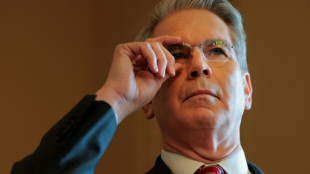 Stocks waver as investors weigh earnings, car tariff hopes
Stocks waver as investors weigh earnings, car tariff hopes
-
US climate assessment in doubt as Trump dismisses authors
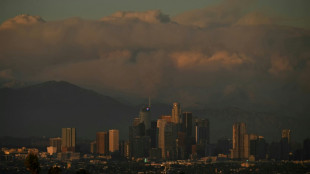
-
 W. House slams Amazon over 'hostile' plan to display tariff effect on prices
W. House slams Amazon over 'hostile' plan to display tariff effect on prices
-
What we know ahead of conclave to elect new pope
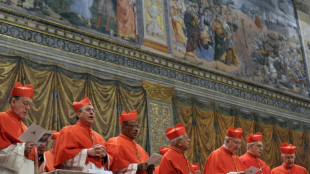
-
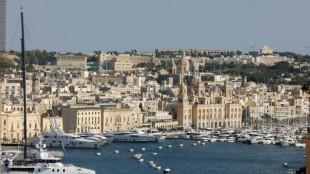 EU top court rules 'golden passport' schemes are illegal
EU top court rules 'golden passport' schemes are illegal
-
Mounds of waste dumped near Athens's main river: NGO
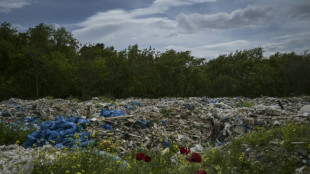
-
 Spain starts probing causes of massive blackout
Spain starts probing causes of massive blackout
-
France targets cheap Chinese goods with fee on packages

-
 Amnesty accuses Israel of 'live-streamed genocide' in Gaza
Amnesty accuses Israel of 'live-streamed genocide' in Gaza
-
Japan, Philippines leaders vow to deepen security ties

-
 AstraZeneca moves some production to US amid tariff threat
AstraZeneca moves some production to US amid tariff threat
-
Shadman's ton gives Bangladesh lead in 2nd Zimbabwe Test

-
 Barca's Yamal: I admire Messi but don't compare myself to him
Barca's Yamal: I admire Messi but don't compare myself to him
-
Pfizer profits dip on lower Paxlovid sales

-
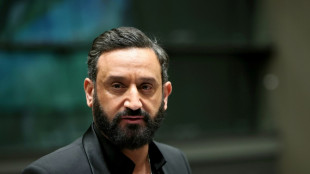 French right-wing TV host fans talk of presidential bid
French right-wing TV host fans talk of presidential bid
-
Two men in court charged with 'moronic' felling of famed UK tree
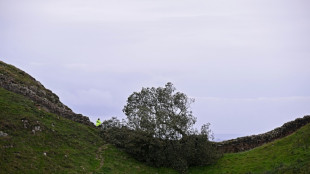
-
 Amnesty accuses Israel of 'live-streamed genocide' against Gazans
Amnesty accuses Israel of 'live-streamed genocide' against Gazans
-
Spotify posts record profit in first quarter

-
 Sciver-Brunt named as England women's cricket captain
Sciver-Brunt named as England women's cricket captain
-
GM profits top estimates, but automaker reviewing outlook due to tariffs

-
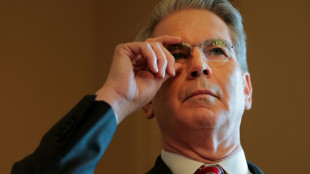 Stock markets edge up as Trump softens tariff pain for auto firms
Stock markets edge up as Trump softens tariff pain for auto firms
-
Pricier trainers? Adidas warns on US tariff impact

-
 Spain, Portugal rule out cyberattack for massive blackout
Spain, Portugal rule out cyberattack for massive blackout
-
Suryavanshi, 14, dubbed India's next superstar after shattering records

-
 Power back in Spain, Portugal after massive blackout
Power back in Spain, Portugal after massive blackout
-
Pakistan says it shot down Indian drone along Kashmir border
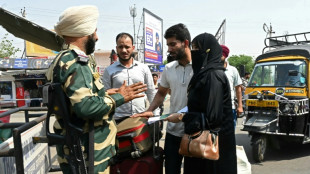
-
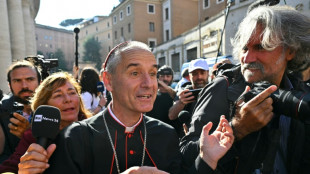 Cardinals run the media gauntlet ahead of conclave
Cardinals run the media gauntlet ahead of conclave
-
BP profit drops 70% amid pivot back to oil and gas


Satire and poetry: Milan Kundera took on life's absurdity
Milan Kundera, the author of "The Unbearable Lightness of Being" whose dark, provocative novels delved into the enigma of the human condition, has died, a spokeswoman for the Milan Kundera Library in his native city of Brno said on Wednesday. He was 94.
"Unfortunately I can confirm that Mr Milan Kundera passed away yesterday (Tuesday) after a prolonged illness," she told AFP.
Kundera died at his apartment in Paris, France, his adoptive country where he had lived since his emigration from Communist-ruled Czechoslovakia in 1975.
"Not only Czech literature, but world literature as well has lost one of the greatest contemporary writers, and one of the most translated writers too," Tomas Kubicek, director of the Kundera library, told the public Czech TV.
Czech Prime Minister Petr Fiala said Kundera was able to "appeal to whole generations of readers across all continents" with his work.
Kundera was frequently touted as a favourite to win the Nobel Prize for literature, but he never claimed the coveted honour.
Through his characteristic satire and poetic prose, Kundera had sought to express all that is compelling and absurd about life, drawing on his own experiences of being stripped of his Czech nationality for dissent.
Life, he said in his work of criticism "Art of the Novel" (1986), "is a trap we've always known: we are born without having asked to be, locked in a body we never chose, and destined to die."
- Young rebel -
Kundera was born on April 1, 1929, in the town of Brno, in what was then Czechoslovakia. His father was a famous pianist.
He studied in Prague, where he joined the Communist Party, translated the French poet Apollinaire and wrote poetry of his own.
He also taught at a film school where his students included the future Oscar-winning director Milos Forman.
Although he professed faithfulness to Communism, the independent spirit of Kundera's writing soon got him into trouble.
He was expelled from the party in 1950, re-joined in 1956 and was expelled a second time in 1970 after the Prague Spring reform movement -- in which he was seen as playing a role -- was crushed.
- Locked out -
Kundera's first novel "The Joke", a work of dark humour about the one-party state published in 1967, led to a ban on his writing in Czechoslovakia while also making him famous in his homeland.
In 1975, he and his wife Vera went into exile in France, where he worked for four years as an assistant professor at the University of Rennes. They were stripped of their Czech nationality in 1979.
In his adopted home, where he became a citizen in 1981, his reputation and success grew as translations of his novels appeared, such as "Life is Elsewhere" (1973) set in Czechoslovakia about a poet entrapped by the Communist regime.
"The Book of Laughter and Forgetting" (1979) playfully explored through seven interlinked narratives the nature of forgetting in politics, history and daily life.
The novel was "brilliant and original," said the New York Times in 1980, "written with a purity and wit that invite us directly in; it is also strange, with a strangeness that locks us out."
Kundera was an author "fascinated by sex, and prone to sudden, if graceful, skips into autobiography, abstract rumination, and recent Czech history," said the Times reviewer, John Updike.
By far his most famous work, "The Unbearable Lightness of Being" was published in 1984 and turned into a film starring Juliette Binoche and Daniel Day-Lewis in 1987.
The novel is a morality tale about freedom and passion, on both an individual and collective level, set against the Prague Spring and its aftermath in exile.
- No going back? -
Kundera's critics say he turned his back on fellow Czechs and dissidents following his exile in France and for his decision to ban the translation of his French books into Czech.
In 2008, a Czech magazine accused him of being a police informer under Communist rule, which he denied as "pure lies".
In 2013, Kundera published his first novel after a 13-year hiatus.
"The Festival of Insignificance", about five friends in Paris, received mixed reviews, with The Atlantic noting its "near-impenetrable irony" and The Guardian deeming it a "stinker".
What Kundera "has to tell us seems to have less relevance", said the New York Times. "You can’t help wondering what his evolution would have been like if he had stayed, or stayed longer, in Czechoslovakia."
In 2019, the Czech Republic restored his nationality and in 2023 the Milan Kundera Library opened in his hometown of Brno.
L.Davis--AMWN

